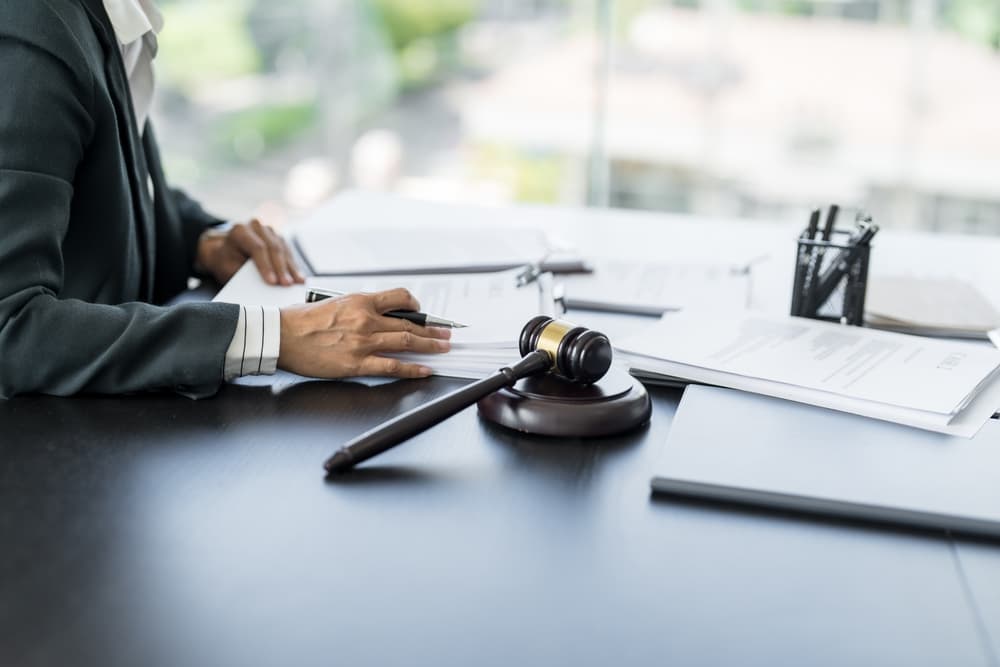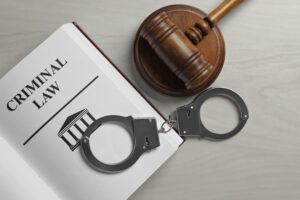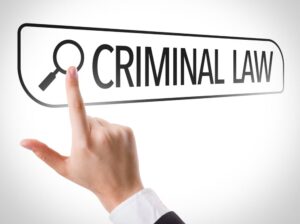How to Choose a Criminal Defense Lawyer

If police have arrested you or someone you love, you likely feel scared, confused, and alone. The police may have asked you a lot of questions. You might worry about your job, family, and future. These feelings are normal. But remember, you do not have to face this alone.
This is the time to find a good criminal defense lawyer. A lawyer trains to protect your rights and uphold the law. They understand the system and can speak for you.
Having the right attorney on your side is one of the most important things you can do now.
But how do you find the right one? This guide will walk you through choosing a lawyer qualified to handle your case. We will talk about what to look for, what questions to ask, and how to know you have found a good fit.
Key Takeaways for Choosing a Criminal Defense Lawyer
- Act Quickly: Engage a lawyer immediately after an arrest to protect your rights. Early intervention allows your attorney to manage the case from the start.
- Focus on Relevant Experience: Select a lawyer who dedicates their practice to criminal defense and has experience with cases similar to yours in the local courts.
- Prioritize Clear Communication: Your lawyer should explain complex legal matters in understandable terms and maintain regular contact with you about your case’s progress.
- Demand Professionalism and Transparency: A professional lawyer provides a clear, written fee agreement, avoids making unrealistic promises, and maintains a good standing with the state bar association.
Why You Need a Criminal Defense Lawyer in the First Place

After an arrest, you might question the need to hire an attorney. Perhaps you believe the situation is a misunderstanding you can resolve by explaining your side of the story.
Attempting to navigate the system alone often creates more problems.
The criminal justice system presents a complex and adversarial process. The government, represented by a prosecutor, brings the charges against you. Prosecutors possess significant resources and legal experience. You need someone with equal knowledge and skill to defend your interests.
You need someone with just as much knowledge and skill on your side.
An effective criminal defense lawyer performs several critical functions:
- Protects Your Rights: From the beginning, a lawyer ensures the police and prosecutors follow the rules. Laws control how evidence can be collected and how people must be treated. An experienced attorney knows these rules inside and out and can tell when they have been broken.
- Serves as Your Advocate: Your lawyer speaks for you in court and during all negotiations with the prosecutor. They know how to build a compelling narrative and present your case in the strongest possible light.
- Explains Your Options: A good attorney will tell you what you face in simple, clear terms. They will explain the possible outcomes, from getting the case dismissed to going to trial or accepting a plea agreement. They give you the information you need to make the best choices for your own life.
- Reduces Your Stress: Facing criminal charges is stressful. A lawyer takes on the burden of filing paperwork, meeting deadlines, and talking to the other side, freeing you up to focus on your life and your family.
Hiring an attorney is not a sign of guilt. It is a sign that you are taking the situation seriously and protecting your future.
Where to Start Looking for a Criminal Defense Lawyer

You might not even know where to begin your search. That’s okay. Most people don’t have a criminal defense lawyer’s number saved in their phone.
Here are a few places to start.
- Referrals from People You Trust: Do you know a friend, family member, or coworker who has hired a lawyer before? Even if they hired a lawyer for something different, like a divorce or a business issue, that lawyer can recommend a good criminal defense attorney.
- Your State’s Official Bar Association: Every state has a bar association, an official group that licenses and keeps track of all lawyers. Their website is a good place to look for attorneys. You can often search for lawyers based on the type of law they practice and their location. The state bar is also the place that makes sure lawyers follow the rules. These rules of professional conduct guide how a lawyer must behave to ensure they are working in their client’s best interest.
- Online Legal Directories: Some websites focus on listing and rating lawyers. These can be a helpful starting point, but do not rely on them alone. Use them to get names, and then do your research. You can find helpful public guides, like one from the American Bar Association, that give tips on what to look for.
What to Evaluate When Choosing a Criminal Defense Lawyer
When you have a list of names, it’s time to look closer. You are looking for a professional who is not just good at their job but also good for you. You should focus on three main things: Experience, Communication, and Professionalism.
The Right Kind of Experience
Not all lawyers have the same experience. Someone who helps people buy houses is not the right person to handle a criminal charge.
You need a true criminal defense attorney.
- Focus on Criminal Law: Look for a lawyer who spends most or all their time on criminal defense cases. This area of law is always changing, and you want someone up-to-date on the latest rules and strategies. Ask them what percentage of their work is criminal defense. The answer should be close to 100 percent. The National Association of Criminal Defense Lawyers supports attorneys focusing on criminal defense.
- Experience with Your Type of Case: Criminal law is a big field. There are many different types of charges, from driving under the influence (DUI) to theft or assault. If you can, find a lawyer who has handled cases like yours many times before. They will know what to expect and what defenses have worked in the past. The court has specific requirements for very serious charges for a lawyer’s qualifications, showing how important experience is.
- Local Court Experience: It helps to have a lawyer who knows the local courts, judges, and prosecutors. Every courthouse has its way of doing things. An attorney who is there often will understand the people and the procedures, which can be a big help.
- Trial Experience: Ask the lawyer how many cases they have taken to trial. Many cases do not end in a trial. They might be dismissed or settled with a plea agreement. However, you need a lawyer who is not afraid to go to trial if that is the best path for you. If a prosecutor knows your lawyer is ready and willing to fight in court, you may get a much better offer.
Communication You Can Understand
You are going to talk to your lawyer a lot. You will share personal information and make big decisions based on their advice, so you must communicate well with them.
- They Listen to You: Does the lawyer listen to your story in your first meeting? Do they let you talk and ask questions? A good lawyer knows they need to understand your side of things completely.
- They Explain Things Clearly: A lawyer can explain the law and your situation in words you can understand. They should avoid confusing legal jargon. You should leave a meeting with a lawyer feeling clearer, not more confused. If you do not understand something, you should feel comfortable asking them to explain it again.
- They Are Available: Ask how the law firm communicates. Who will be your main point of contact? How quickly do they return phone calls or emails? While you cannot expect your lawyer to be available 24/7, you need to know that you can reach them or their staff and get a response in a reasonable amount of time. You should always feel heard and respected.
A Professional and Trustworthy Practice
A lawyer is a professional; their office should reflect professionalism in every interaction. Notice how they treat you from the first phone call—are they respectful, attentive, and prompt in responding? A well-run office values your time and concerns, prioritizing clear communication.
These early impressions often show how smoothly the lawyer will handle your case and how seriously they will take it.
- A Clear Fee Agreement: Good lawyers are upfront about their fees. They can explain how they charge for their work. Some charge a flat fee for the whole case. Others charge an hourly rate. The written agreement should clearly explain which method applies. This agreement is a contract, so read it carefully. Be careful of any lawyer who promises a certain result.No one can guarantee an outcome in a legal case. The government has official rules about how lawyers can handle client money and what they can charge for.
- No Big Promises: A red flag is a lawyer who guarantees they can get your case dismissed or win at trial. An honest attorney can tell you about their past successes and strategies for your case. But they can never promise a specific result. The justice system has too many moving parts. Groups that advocate for individual rights, like the ACLU, always stress that outcomes are uncertain.
- Good Standing with the State Bar: You can check with the state bar association to see if a lawyer has ever been in trouble for breaking the rules. The bar association has a public record of any time a lawyer has faced discipline. The state’s official codes define the grounds for which an attorney can be disciplined or disbarred to protect the public from misconduct.
Preparing for Your First Meeting with a Defense Attorney

Most criminal defense lawyers offer a first meeting for free. This is often called a consultation. This meeting is a two-way street. The lawyer is deciding whether to take your case, and you are deciding whether to hire them.
Be prepared for this meeting. Bring any paperwork related to your arrest, such as a bail receipt, a ticket, or a list of charges. Write down a list of questions you want to ask.
Here are some good questions to ask a lawyer during your first meeting:
- How long have you been practicing criminal law?
- What percentage of your cases are criminal defense?
- Have you handled cases like mine before? What were the outcomes?
- Who in your office will I be working with? Will it be you or another attorney?
- How do you keep your clients updated on their cases?
- What is your strategy for a case like mine? What are the possible good and bad outcomes?
- What are your fees? Can I get a written fee agreement?
- What is the next step if I hire you?
Pay attention to how you feel during the meeting. Do you feel comfortable with this person? Do you trust them? Your gut feeling is important. You are hiring someone to be on your team during a difficult time.
Confidentiality is an important part of the relationship between a client and their attorney. The law protects what you tell your lawyer in private. This principle is so important that organizations like The Sentencing Project highlight a strong, trusting relationship with counsel as key to a fair justice system.
This protection allows you to speak completely honestly with your attorney, which they need you to do for them to build the strongest defense for you.
Choosing the Right Defense Lawyer to Protect Your Future
After you meet with one or more lawyers, choose. Do not just pick the cheapest one. Consider the three big areas: experience, communication, and professionalism.
The best lawyer for you is the one who gives you confidence. You should feel that they have the skill to handle your case, will listen to you and keep you informed, and will fight for your rights every step of the way.
When you decide to hire a lawyer, they will ask you to sign a representation agreement and likely pay a fee or a retainer.
Once you have done that, they can begin working on your case immediately. They can contact the prosecutor, file motions, investigate the facts, negotiate on your behalf, and appear in court to defend you.
Criminal Defense FAQs
How much does a criminal defense lawyer cost?
The cost varies significantly based on the lawyer’s experience, the complexity of your case, and your location, but it’s generally less than the cost of a conviction.
Lawyers may charge a flat fee, which is a single, upfront price for handling the entire case. Others charge an hourly rate and require an initial payment called a retainer, from which they bill their time.
Always ask for a clear, written fee agreement during your initial consultation.
What is the difference between a state crime and a federal crime?
State crimes violate laws passed by a state legislature, and the case proceeds through the state court system. Examples include most DUI, assault, and theft cases.
Federal crimes violate laws passed by the U.S. Congress, and federal agencies like the FBI investigate them. Federal cases, such as bank fraud or drug trafficking across state lines, proceed through the federal court system, which has different procedures, sentencing guidelines, and prosecutors.
If I am innocent, do I still need a lawyer?
Yes. The criminal justice system presumes innocence, but the prosecutor’s job is to prove guilt beyond a reasonable doubt.
An innocent person still needs a skilled attorney to challenge the prosecution’s evidence, expose weaknesses in their case, and present the facts that prove your innocence. Navigating the system without legal representation is extremely risky, regardless of your guilt or innocence.
Build a Strong Case With A Criminal Defense Lawyer
Finding the right criminal defense attorney is critical to taking back control of your situation. It transforms a scary, uncertain path into a journey guided by a knowledgeable professional.
Don’t wait to start looking—the earlier a lawyer gets involved, the more they can protect your rights and improve your chances of a positive outcome.


